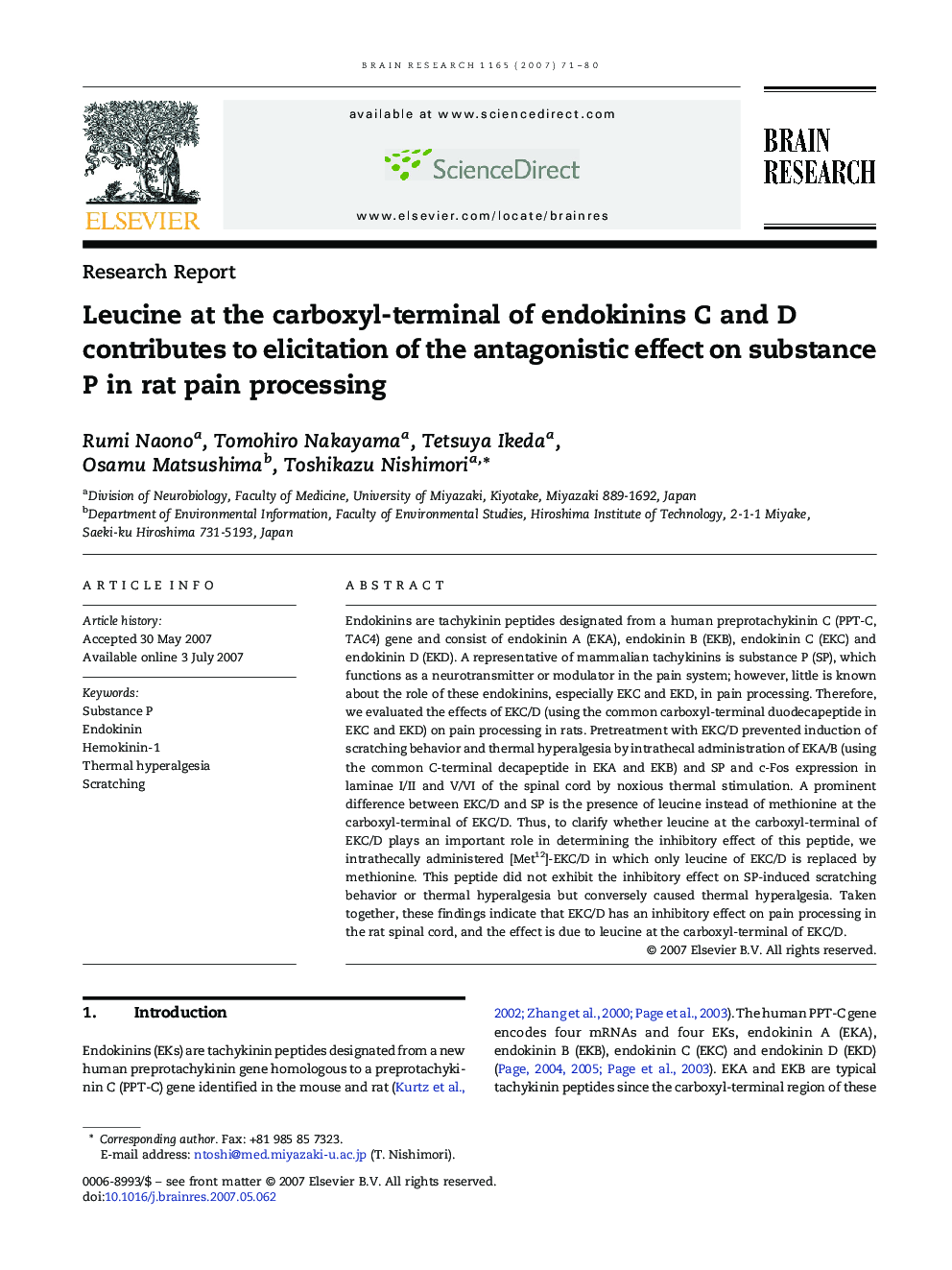| Article ID | Journal | Published Year | Pages | File Type |
|---|---|---|---|---|
| 4330860 | Brain Research | 2007 | 10 Pages |
Endokinins are tachykinin peptides designated from a human preprotachykinin C (PPT-C, TAC4) gene and consist of endokinin A (EKA), endokinin B (EKB), endokinin C (EKC) and endokinin D (EKD). A representative of mammalian tachykinins is substance P (SP), which functions as a neurotransmitter or modulator in the pain system; however, little is known about the role of these endokinins, especially EKC and EKD, in pain processing. Therefore, we evaluated the effects of EKC/D (using the common carboxyl-terminal duodecapeptide in EKC and EKD) on pain processing in rats. Pretreatment with EKC/D prevented induction of scratching behavior and thermal hyperalgesia by intrathecal administration of EKA/B (using the common C-terminal decapeptide in EKA and EKB) and SP and c-Fos expression in laminae I/II and V/VI of the spinal cord by noxious thermal stimulation. A prominent difference between EKC/D and SP is the presence of leucine instead of methionine at the carboxyl-terminal of EKC/D. Thus, to clarify whether leucine at the carboxyl-terminal of EKC/D plays an important role in determining the inhibitory effect of this peptide, we intrathecally administered [Met12]-EKC/D in which only leucine of EKC/D is replaced by methionine. This peptide did not exhibit the inhibitory effect on SP-induced scratching behavior or thermal hyperalgesia but conversely caused thermal hyperalgesia. Taken together, these findings indicate that EKC/D has an inhibitory effect on pain processing in the rat spinal cord, and the effect is due to leucine at the carboxyl-terminal of EKC/D.
